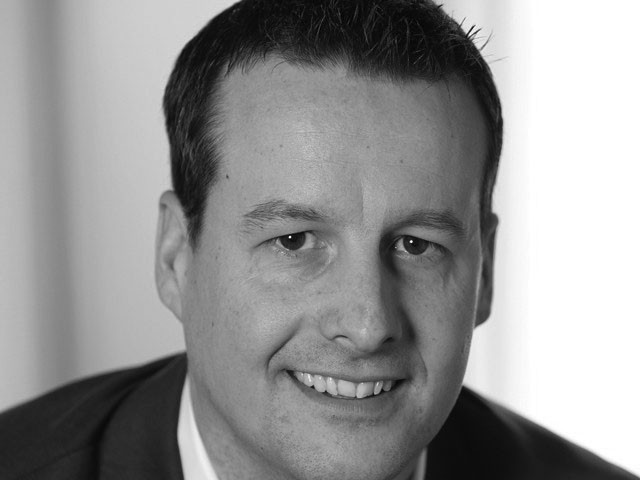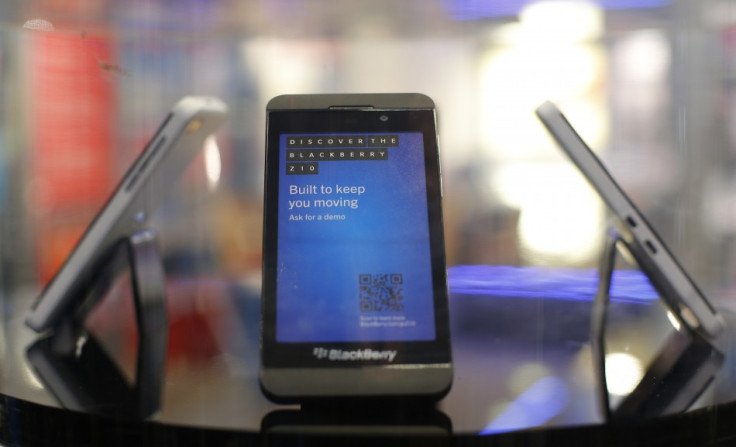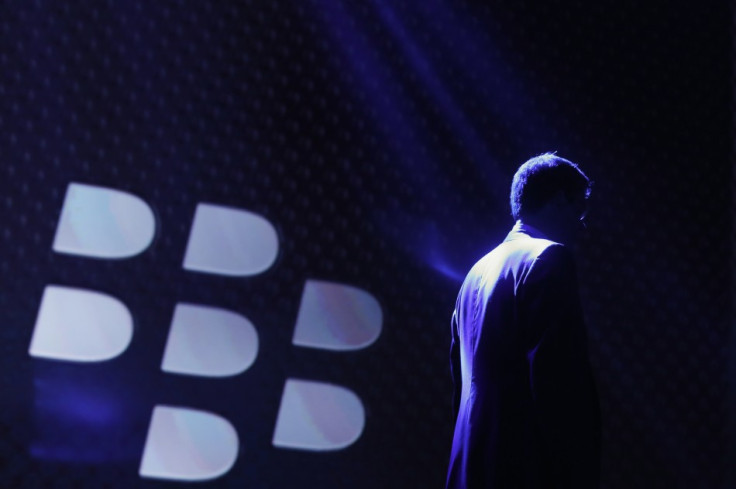This is Just the Beginning for BlackBerry
BlackBerry's UK head Rob Orr talks about the new platform, a changing company and the challenges its faces trying to regain lost ground.

It's been a long six months for Rob Orr, preparing and then launching what is seen as the last roll of the dice for the iconic company whose devices led the way for the smartphone revolution.
It has been a long 48 hours for Orr when I caught up with him in a Soho Hotel on Thursday evening. The previous day he had led the UK launch of BlackBerry 10 in London while in New York his CEO Thorsten Heins unveiled to the world the new operating system and smartphones which the company, formerly known as RIM, hopes will turn its fortunes around.
Following the unveiling on Wednesday, Orr then had to regroup for the launch of the Z10 smartphone on Thursday morning, with the UK becoming the first place in the world where the new smartphones would go on sale.
With so much pressure on his shoulders, it is clear that Orr understands how important it is for them to get the launch right in the UK: "It has been my rigid focus for the last six months," Orr says with the zeal of a man who has lived and breathed BB10 for longer than he cares to remember.
"The UK is a very important market for the company, and it has been for a very long time. BlackBerry was first introduced to Europe through the UK."
Despite all its problems, BlackBerry remains in third place in the UK smartphone market behind Apple and Android. It has a customer base of eight million across both consumer and enterprise sectors.
Competitor
When asked if he sees Windows Phone as his main competitor for his customers and his market share, Orr remains defiant that BB10 will see BlackBerry consolidate its position:
"I'm already the third. I'm comfortably the third by market share in the UK. This platform, BlackBerry 10, with what we've done with it, is going to help me solidify, maintain that position as a starting point, and then grow from there."

Orr speaks as if BlackBerry and he are one in the same. Rather than referring to the company as "we" or "us", Orr speaks in the first person, indicating just how important this is to him and his company.
BlackBerry has seen its market share of the global smartphone market drop from a high of around 20 percent in 2009 to less than 5 percent today, with its share of the all-important US market evaporating almost completely.
In a bid to remedy this, BlackBerry is set to spend hundreds of millions of pounds on a huge marketing campaign to promote BlackBerry 10, beginning with a costly TV spot during the 47th Super Bowl last weekend.
When asked about how important it was for the company to get the marketing of BB10 right, Orr says he isn't interested in getting thing 99 percent right, he says the company needs "to be flawless."
"If you look at the branding of the company, the way we are executing the messaging, it's all been done consistently and in unison."
Ridicule
However hours ahead of the launch last week, the company came in for a lot of ridicule following two high-profile interviews by European head Stephen Bates on the BBC. Bates was accused of avoiding questions about the impact the iPhone had on BlackBerry's business, as well as questions about mistakes the company had made in the past.
When this is put to Orr, it is clear that the PR machine has been in action behind the scenes, with the UK head talking about "re-branding, re-invigoration, re-invention" rather than specifically addressing the issues which have plagued the BlackBerry brand over the past three years.
Understandably BlackBerry wants to put the problems it has had behind it. It only wants to talk about BlackBerry 10 and the future. By not addressing the issues the company has had however, it comes across as if it has something to hide, and gives customers the impression that BlackBerry is not a brand they could trust.
However Orr did admit that the company has "very clearly changed as a company in the last 12 months."
He adds: "Change is necessary on the back of some of the challenges you go through. The re-branding of a company, the launch of a brand new platform, we want to focus on the here and the now and the going forward. That's the story we're telling."
"You grow and learn by the things and the experiences you go through in life, and professionally as a company. We take all of the positive and all of the negative that we know and we've built it into BlackBerry 10."
Consolidating

When asked if BlackBerry was planning on consolidating its current customer base or going after those using Android and iOS, Orr said the logical place to start is to go and talk to your existing customers.
But a lot of people the company would have been talking to have left the Blackberry family in recent years and it might be difficult to get them back into the fold.
During the launch, BlackBerry announced Alicia Keys as Global Creative Director. Keys admitted she was one of those who left the BlackBerry fold and has now been enticed back, but it is unlikely that BlackBerry will be able to give every former customer such a glamorous title in order to ensure they become BlackBerry customers again.
Therefore it is going to be down to the operating system itself and what it offers which will ultimately decide whether or not it is going to be a success. Orr believes that BlackBerry Balance is the key feature.
Balance allows corporate users to separate their work and personal lives, with two accounts on a single device. IT managers will be able to give employees access to corporate email, safe in the knowledge that the system is secure, while employees will get the access to everything available in BlackBerry World just like regular consumers.
Orr describes it as "the moment you no longer want to look at what's happening at work and just want to be the consumer, I put the Hub into Balance mode and lock my corporate [account], information disappears and what I'm left with is what's important to me."
Target
BlackBerry is looking to target both consumer and enterprise at the same time and while features like BlackBerry Balance will appeal to corporate users, the company is playing up the 70,000 apps it has secured for BlackBerry World at launch as a big attraction for consumers.
At the launch the company spoke about some high-profile names which will be joining the eco-system, such as Skype, Angry Birds and WhatsApp. However most of these are not there yet. Is this BlackBerry getting ahead of itself and trying to trick people?
"It is almost impossible to get 70,000 people to the same finishing point. The big ones are there. The top 1,000 that was talked about, [they] will be there in the coming days," Orr said.
However when it was pointed out that only one of the top paid 25 apps from iTunes was available on BlackBerry World, Orr was hesitant, repeating the mantra: "They will be there."
Orr believes that app developers who didn't want to be part of the platform before it was launched will be sufficiently impressed with BlackBerry 10 once they see it in action, to come on board.
"There is no shortage of interest in wanting to be part of the platform and I think what you are going to see is a very rapid acceleration now."
Orr references so-called port-a-thons which BlackBerry held ahead of the launch which saw almost 20,000 apps added to BlackBerry World in a single weekend. However looking through the app catalogue at the moment, it seems like it is quantity over quality.
Long road
BlackBerry faces a long road ahead if it wants to regain its previous position in the smartphone world. The company has said it will be introducing devices which "will address every segment of the market over time," and if it wants to retain its eight million UK customers, it will need to do this pretty quickly.
The Z10 costs almost as much as the iPhone, and with no concrete date or pricing for the Q10 announced yet, the company will need to appeal to a much broader customer base if it wants to maintain its third place in the UK - and Orr believes it will:
"I have a very complete proposition today, I am very happy with what we're launching as a first generation platform. All I can see for the next 12 months is more good stuff coming. I don't ever see the point where that innovation stops,"
As Orr leaves our meeting to grab a beer and reflect on a tough six months just gone, it's clear that he knows this is just the beginning for the re-imagined BlackBerry.
© Copyright IBTimes 2025. All rights reserved.






















